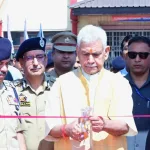In the realm of healthcare administration, the evaluation of hospital performance is a multifaceted endeavor. Administrators are tasked with not only ensuring the effective delivery of medical services but also with communicating the hospital’s performance to various stakeholders, including the media and bureaucrats. While quantitative key performance indicators (KPIs) provide tangible metrics for assessment, the relevance of qualitative KPIs cannot be overlooked. However, the interpretation of data, particularly in the presence of non-medical professionals, can lead to misrepresentation and manipulation. This article explores the importance of both quantitative and qualitative KPIs in evaluating hospital performance, the challenges posed by data interpretation, and the imperative for transparent and ethical practices in healthcare administration.
Quantitative KPIs offer a numerical snapshot of hospital performance, encompassing metrics such as patient outcomes, financial efficiency, and operational effectiveness. These metrics provide concrete evidence of the hospital’s success or shortcomings and are often used to benchmark against industry standards. For instance, metrics like patient mortality rates, readmission rates, and infection rates are critical indicators of the quality of care provided by a hospital. Similarly, financial KPIs like revenue growth, profit margins, and cost per patient help gauge the hospital’s fiscal health and sustainability.
However, a sole reliance on quantitative KPIs overlooks the nuanced aspects of healthcare delivery that cannot be captured by numbers alone. This is where qualitative KPIs come into play. Qualitative indicators encompass aspects such as patient satisfaction, staff morale, and organizational culture. While these metrics may be more challenging to quantify, they offer valuable insights into the human experience of healthcare and the effectiveness of organizational processes. For example, patient satisfaction surveys provide feedback on aspects like communication with healthcare providers, waiting times, and overall experience, which are crucial for improving patient-centered care.
The relevance of qualitative KPIs becomes even more apparent considering the limitations of quantitative metrics. Administrators often face pressure to meet targets and achieve favorable statistics, leading to a phenomenon known as “gaming” or manipulation of data. This manipulation can take various forms, including coding practices that inflate reimbursement rates, selective reporting of outcomes, and strategic patient selection to improve performance metrics. When non-medical professionals, such as media or bureaucrats, are part of the audience, there is a risk of misinterpretation or misrepresentation of data for political or public relations purposes.
Data interpretation in the context of hospital performance evaluation is indeed an art, a specialty, but it is one that must be approached with integrity and transparency. The glass can be perceived as half full or half empty depending on how the data is presented and contextualized. Administrators have a responsibility to ensure that data is accurately reported, interpreted, and communicated to stakeholders. This necessitates robust data governance frameworks, rigorous validation processes, and a commitment to ethical conduct.
Transparency is paramount in mitigating the risks associated with data interpretation. Hospitals should disclose their methodologies for data collection, analysis, and reporting to promote accountability and trust. Moreover, engaging stakeholders in the interpretation process can help foster a more nuanced understanding of performance metrics and promote collaboration in quality improvement efforts. For instance, involving frontline staff in analyzing patient feedback can lead to actionable insights for enhancing the quality of care.
Interpreting qualitative indicators data from a tertiary care hospital requires a nuanced understanding of healthcare dynamics and performance metrics. While these indicators may impress non-medical individuals, such as the general public or media, clinical auditors typically approach data interpretation from a more critical and specialized perspective. Here are some considerations regarding the recent release of qualitative indicators data published in many media outlets.
Contextual Understanding
Clinical auditors are trained to contextualize qualitative data within the broader framework of healthcare delivery. They consider factors such as patient acuity, case complexity, and institutional challenges that may influence performance metrics.
Depth of Analysis
Clinical auditors delve deeper into qualitative indicators to uncover underlying trends, patterns, and root causes. They scrutinize data beyond surface-level impressions, identifying areas for improvement and potential areas of concern.
Benchmarking Against Standards
Clinical auditors benchmark qualitative indicators against established clinical guidelines, evidence-based practices, and industry standards. They assess whether the hospital’s performance aligns with best practices and identifies areas where deviations may occur.
Clinical auditors prioritize patient-centered care in their data interpretation. They assess qualitative indicators from the perspective of patient experience, safety, and outcomes, ensuring that healthcare delivery meet the highest standards of quality and safety. Clinical auditors collaborate closely with healthcare professionals to interpret qualitative indicators data accurately. They engage in dialogue with hospital staff, administrators, and stakeholders to gain insights into the underlying factors driving performance metrics and facilitate continuous improvement efforts.
Clinical auditors adhere to ethical principles in data interpretation, ensuring integrity, transparency, and confidentiality. They maintain objectivity and impartiality, avoiding biases or conflicts of interest that may compromise the validity of their analysis. Overall, while qualitative indicators data may be impressive to non-medical audiences, clinical auditors provide a comprehensive and critical assessment that goes beyond surface-level impressions. Their specialized expertise and rigorous approach to data interpretation contribute to enhancing the quality, safety, and effectiveness of healthcare delivery in tertiary care hospitals.
Success in a tertiary care hospital can be measured through a combination of quantitative and qualitative Key Performance Indicators (KPIs) that reflect the hospital’s ability to provide high-quality, specialized care to patients while ensuring operational efficiency and excellence. Here are some specific KPIs that can indicate success in a tertiary care hospital:
Patient Outcomes
- Mortality Rates: Low mortality rates across different specialties and procedures indicate effective clinical care and patient safety.
- Complication Rates: Minimal occurrence of post-operative complications or adverse events reflects the hospital’s commitment to quality and safety.
- Patient Satisfaction Scores: High scores on patient satisfaction surveys demonstrate positive experiences and perceptions of care.
- Clinical Excellence: Clinical Quality Indicators: Adherence to evidence-based clinical guidelines and best practices in disease management and treatment.
- Clinical Research Output: Quantity and impact of clinical research publications and contributions to advancing medical knowledge and innovation.
- Operational Efficiency: Length of Stay: Efficient management of patient flow and resources, resulting in optimal length of hospital stays without compromising quality of care.
- Bed Utilization Rate: Effective utilization of hospital beds to minimize waiting times and maximize efficiency.
- Emergency and Operating Room Turnaround Time: Timely turnover of operating rooms to optimize surgical throughput and minimize delays.
Specialized Services
- Case Complexity Index: Successful management of complex cases requiring specialized expertise and resources.
- Referral Volume: High volume of patient referrals from other healthcare providers indicates trust and recognition of the hospital’s specialized services.
- Staff Engagement and Development:
- Staff Retention Rates: High retention rates among clinical and non-clinical staff indicate a positive work environment and effective leadership.
- Continuing Education Participation: Participation in ongoing education and training programs to maintain and enhance clinical skills and knowledge.
- Financial Performance:
- Revenue Growth: Sustainable growth in revenue streams from patient care services, research grants, and philanthropic contributions.
- Profitability: Achieving financial viability and profitability while reinvesting in facilities, technology, and staff development.
Community Impact
- Community Health Initiatives: Participation in community outreach programs, health education campaigns, and preventive care initiatives to improve population health.
- Access to Care: Ensuring equitable access to specialized healthcare services for underserved populations and marginalized communities.
By monitoring and optimizing these specific KPIs, a tertiary care hospital can demonstrate success in delivering high-quality, specialized care, achieving operational excellence, and making a positive impact on patient outcomes and community health.
In conclusion, the evaluation of hospital performance requires a balanced approach that considers both quantitative and qualitative KPIs. While quantitative metrics offer tangible measures of success, qualitative indicators provide valuable insights into the human aspects of healthcare delivery. However, the interpretation of data must be approached with caution, particularly in the presence of non-medical professionals who may not fully grasp the complexities of healthcare performance. By prioritizing transparency, integrity, and collaboration, administrators can navigate the challenges of data interpretation and promote a culture of continuous improvement in hospital performance.
(The author is a practicing Surgeon At Mubarak hospital, Certified professional in Healthcare Policy analysis,, Clinical auditor ,National and international expert on Healthcare Quality standards, policy planning and reforms can be reached at [email protected])





